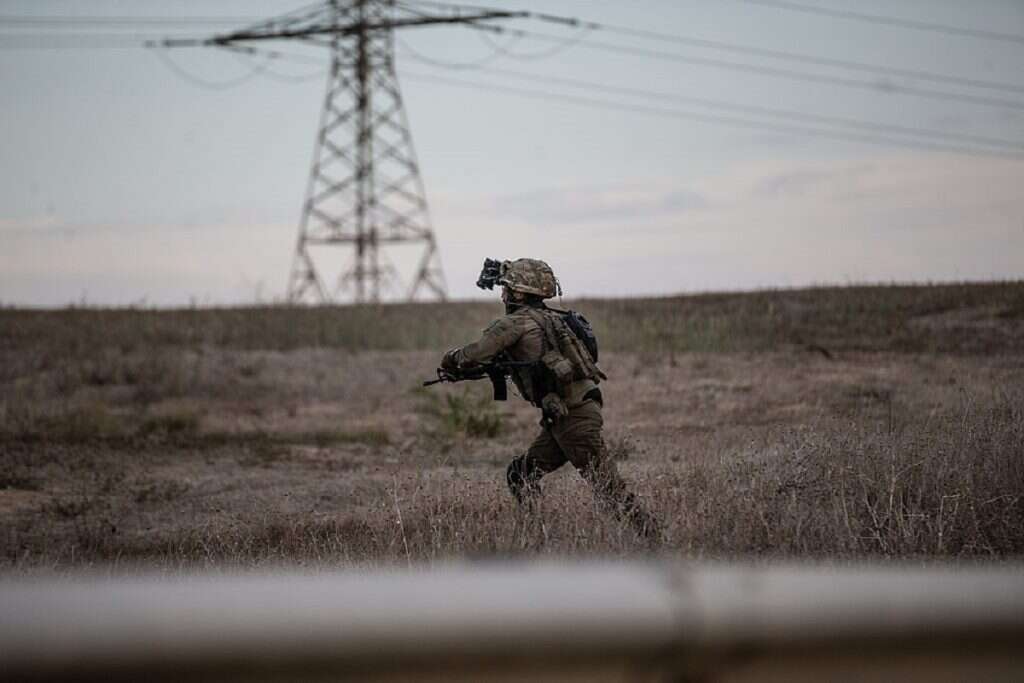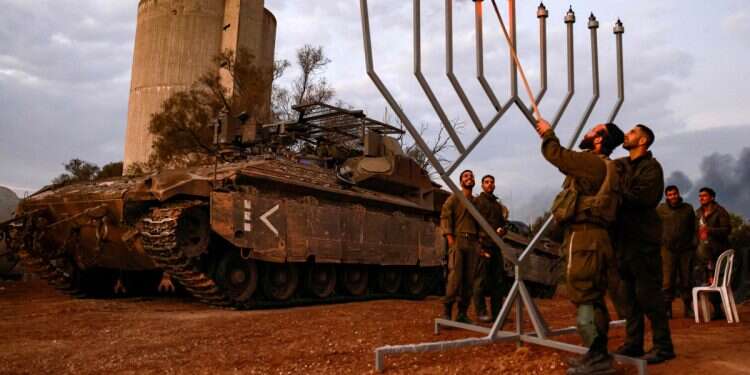More and more tales of valor have emerged since Oct. 7, 2023, alongside an increasing number of heart-wrenching IDF announcements of fallen soldiers that wrench both heart and soul. This Hanukkah, we can also tell of the Maccabees of our own time: Aner Shapira, who with his bare hands repeatedly threw back out the grenades that Hamas terrorists hurled into the shelter, protecting those inside until he was finally struck down; Shifra Buchris, who maintained her composure while evacuating hundreds from the Nova festival; the Klamenson team, who rescued numerous kibbutz Be'eri residents under heavy fire; the heroes of the civilian response teams, many of whom made the ultimate sacrifice; Adar Ben-Simon, who confronted terrorists in the Zikim Base, neutralizing many before falling in battle herself; Yissachar Nathan, who saved families in Kfar Aza and fell fighting in northern Gaza.
These represent just a fraction of the many we owe an immeasurable debt: reluctant heroes who sought not glory, but life itself.

Hundreds and thousands of ordinary citizens and soldiers showed extraordinary courage, both on the battlefield and on the home front which had become a battleground itself. They came without summons, men and women, young and old, risking everything for the collective good. They stand in the tradition of Jewish heroes throughout history – from biblical warriors like Samson and Judah the Maccabee, to the underground resistance fighters of the 1940s who helped establish Israel, to the defenders who sacrificed themselves protecting settlements in 1948, to the soldiers who fought decisive battles in the Six-Day War and made heroic last stands against overwhelming odds in the Yom Kippur War. Heroes who never saw themselves as such.
In the immediate aftermath of the Oct. 7 massacre, we mistakenly drew parallels to an expanded version of the Kishinev pogroms. While the scenes appeared similar, we entirely missed what would only become apparent days later.
We are no longer the weak and submissive community that Hayim Nahman Bialik portrayed in his poem "In the City of Slaughter." "The sons of the Maccabees, the seed of saints, the scions of the lions" did not this time flee as Bialik wrote – "It was the flight of mice they fled, the scurrying of roaches was their flight' – but fought like heroes.
This war marks the renaissance of heroism, spanning across society, from diverse sectors and age groups: adherents of Religious Zionism, settlement residents, kibbutz members, city dwellers, and those from peripheral regions. Each contributed chapters to the epic of Iron Swords' valor. "Who can recall the heroism of Israel, who can count them? For in every generation, a hero arises who redeems the nation," wrote Menashe Ravina in 1935, unaware of how his words would resonate with the Maccabees of 2024.

During the long exile, Jewish heroism became less visible or was reinterpreted through a spiritual-religious lens. Traditionally, Hanukkah primarily celebrated the Temple's rededication, the kindling of lights, and the miracle of the cruse of the oil. The Jewish national revival in the Land of Israel and the emergence of Zionism transformed it into the Hasmoneans' festival as well, adding a distinct national dimension to the victory of Torah culture over Hellenistic influence.
Courage in all its forms
Recent years led us to mistakenly believe that Jewish heroism had grown dormant and that this generation's commitment had waned. Many questioned its willingness to sacrifice and fight for our continued existence as a people and nation. These doubts thoroughly crumbled in the past 14 months. The chronicle of heroism written during Iron Swords stands equal to the heroism displayed by the fighters of 1948, the Six Day War, and the Yom Kippur War. While Hamas, Hezbollah, and Iran imagined a weak, divided military and fractured society, they discovered alongside thousands of heroes who demonstrated courage in all its forms – the valiant generation of 2024.
Yet amid this recognition, we must remember the fate of the Hasmonean state this Hanukkah. That ancient "State of Israel" established in 140 BCE ultimately fell primarily due to the fraternal conflict between Hyrcanus and Aristobulus, great-great-grandsons of Mattathias the Hasmonean, who fought for the throne. After numerous upheavals – Simon's rule and assassination, his son John Hyrcanus's governance, followed by the reigns of Yannai and Salome Alexandra (Shlomtzion) – bitter battles erupted between the Hyrcanus and Aristobulus factions.
Seeking resolution, both turned to the Roman ruler Pompey. He exploited their vulnerability, captured Jerusalem, disbanded the Hasmonean monarchy, and reduced the young state to a Roman vassal. The independent Jewish state of antiquity survived just 77 years. Internal strife and dependence on foreign power sealed its fate.
Today's State of Israel has reached approximately the same age. On the eve of Oct. 7, we had descended into an internal conflict that threatened to overwhelm us all. We emerged at an enormous cost. We must never allow ourselves to fall into that abyss again.




